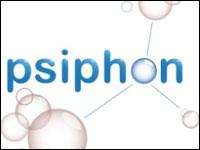Transcript
BOB GARFIELD:
Whether you sit in your cube all day watching YouTube videos or IM friends, or blog about politics, you take unfettered access to the Internet for granted. That's because you don't live in Syria or China or Saudi Arabia or any of the 40-some countries that censor the Net.
For years, human rights groups and techies have sought a way around government snooping, and they may have found it. It's called Psiphon, a sort of social network in which the individual nodes are actual computers set up in non-censoring countries, to be used remotely and untraceably by the online repressed.
Ron Deibert directs the University of Toronto's Citizen Lab, where Psiphon was developed. He says that before Psiphon there were other ways of getting around online censorship.
RON DEIBERT:
In the past, the primary method that people used was to create, in uncensored countries, large public proxies, a series of computers whose addresses were publicized over chats or forums or even over the radio, and citizens within censored countries were encouraged to connect to them and surf the Web freely.
They worked, for the most part. The problem is really twofold. One is that just as citizens can find out about connecting to these proxies, so can the governments. And as soon as the governments find out about them, they put those proxies on a blacklist, so it's a constant cat-and-mouse game, and new proxies have to be set up.
The other shortcoming, in some cases, is that the traffic is in plain text, easily intercepted and monitored by the authorities. So, in essence, you're setting up a honey pot to encourage people to go to computers, to get around Internet censorship, and in doing so, kind of corralling them into areas where the authorities can identify them if they choose to do so.
So prior methods to Psiphon were both inefficient and insecure, I would say.
BOB GARFIELD:
So tell me about Psiphon. Tell me about its origins as a project and essentially how it works.
RON DEIBERT:
Psiphon works by leveraging social networks of trust among individuals who span censored and uncensored locations. And that can include everything from friends and family members and ethnic diaspora communities, Iranian-Americans, Chinese-Americans and so forth; it can include journalists, businesses, non-governmental organizations.
And the way it works is by having an individual install Psiphon on their computer in the uncensored location, and then give the unique user name, password and address for that computer to someone, or a group of people, who lives in a censored country, have them connect to that computer as if they were there, and surf the Internet freely and securely.
The connection between the censored location and the uncensored location runs over an encrypted channel, an HTTPS connection, so it's both encrypted, meaning secure, and also distributed below the radar screen, making it very hard for authorities to identify.
BOB GARFIELD:
And then someone who is in a censored country who was signing onto, let's say, my computer to use it as a proxy would not leave any kind of electronic trail?
RON DEIBERT:
Well, there's no software to install on your computer, so at a most basic level there is no program to identify for users. And we encourage people to, as a matter of practice, erase the cache on their browser once they've finished their Psiphon session, so if their computer is confiscated, authorities would have no means to identify that they've been using Psiphon.
BOB GARFIELD:
Now, are you anticipating that large numbers of people in the uncensored world will actually dedicate specific computers to being proxy points of entry for those in the censored world?
RON DEIBERT:
Well, that's exactly what happened. I mean, we released Psiphon on December 1st, and within a week, I think we had 30,000 downloads of Psiphon software. But, yeah, the response has been enormous. And I've had emails from the human rights community, ethnic diaspora communities, Vietnamese associations, Iranians – they've translated Psiphon into their own languages. We've had journalists who have been using Psiphon because, of course, they have to operate in countries where Internet censorship is common.
BOB GARFIELD:
One more question. There are 40 countries on the list. Are there any surprises in the 40?
RON DEIBERT:
The surprises have really been in the nature of Internet censorship practices themselves, first of all, the extent to which western, mostly U.S., commercial filtering products are used by countries that filter the Internet. Off-the-shelf commercial products that are sold to businesses and schools and public libraries in the United States and Western Europe and so on are now being used by countries like Iran and Yemen and Burma to filter citizens' access to information. And these companies are, in turn, tailoring their products to best suit that market.
To give you one example, one of the commercial filtering products that we've been examining has a category called "Advocacy" that blocks access to websites of organizations that promote opposition to the government. So that clearly, that is a category of websites that's tailor-made for non-Democratic regimes. That, to me, is a very troubling trend.
BOB GARFIELD:
Well, Ron, thank you very much.
RON DEIBERT:
Thank you.
BOB GARFIELD:
Ron Deibert is director of Citizen Lab at the University of Toronto.
